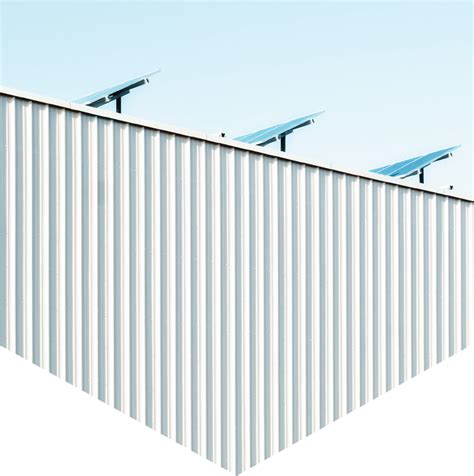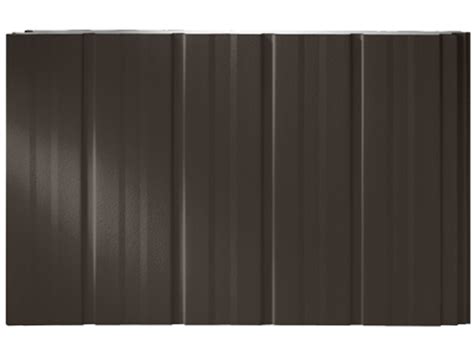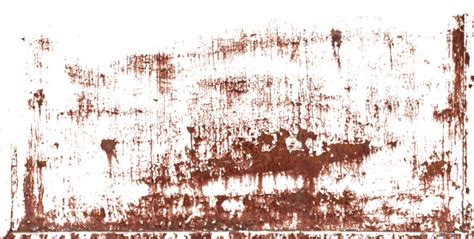Metal roofs are known for their durability and longevity, but it is not uncommon for them to develop rust over time. Understanding why your metal roof is rusting is crucial in order to address the issue effectively.
One of the main reasons for rust on a metal roof is exposure to moisture. When water or moisture comes into contact with the metal surface, it can cause oxidation, leading to rust formation.
This is especially true if the roof has any cracks, gaps, or damaged protective coatings that allow water to seep in.
Another factor that contributes to rusting is the presence of corrosive substances in the environment. Chemicals, pollutants, and salt in the air can accelerate the corrosion process, making the roof more prone to rusting.
Improper installation
Is it normal for a metal roof to rust?
So, the question on many people’s minds is whether steel roofs rust. The answer is yes, steel can rust, especially when it is exposed to various weather conditions for an extended period of time. However, instead of worrying about whether steel roofs will rust, potential buyers should focus on how to reduce the risk or minimize the potential for rust.
What to do if metal roof is rusting?
If your metal roof is rusting, there are several steps you can take to address the issue. First, it’s important to assess the extent of the rusting. If it’s only a small area, you can start by cleaning the affected area with a wire brush and removing any loose rust or debris. Then, apply a rust converter or primer to prevent further rusting.
Once the primer is dry, you can paint the area with a metal roof paint that is specifically designed to protect against rust.
If the rusting is more widespread, it may be necessary to replace the affected panels or sections of the roof. This can be a more involved process and may require the assistance of a professional roofer. They can help determine the best
How long will a rusted metal roof last?
There are several factors to consider when it comes to designing a steel roof that can withstand the challenges of corrosion. In general, steel roofing can last for over 30 years, except in extremely humid and warm areas where salt water exposure, moisture, and heat contribute significantly to steel corrosion. However, in most locations, a bare steel roof with its iconic rusty patina can provide a durable and long-lasting solution.
Does a rusted metal roof need to be replaced?
Even if you’ve noticed that your metal roof has developed rust or sustained damage, there’s no need to panic about replacing it right away. In fact, in many cases, repairs can be a viable solution. The first step to take is to call in an expert who can conduct a thorough inspection of your roof. They will be able to assess the extent of the damage and determine whether repairs or replacement is the better option.
It’s always best to rely on their expertise to make an informed decision.
What are some signs that you should replace a metal roof?
“`Some signs that you should replace a metal roof include visible damage, leaks, and excessive rusting. If you notice dents, cracks, or missing panels on your metal roof, it may be time for a replacement. Leaks are another clear indication that your roof needs attention. If you see water stains on your ceiling or notice water dripping inside your home during rainstorms, it’s a sign that your roof is compromised.
Excessive rusting is also a red flag. Metal roofs are designed to be durable and resistant to rust, but over time, rust can develop due to exposure to moisture and other elements. If you see widespread rusting on your metal roof, it’s a sign that it’s time to consider a replacement. It’s
What are the two biggest concerns to a metal roof?
The two biggest concerns to a metal roof are corrosion and noise. Corrosion can occur if the metal is not properly coated or if it comes into contact with certain chemicals or materials. However, modern metal roofs are typically coated with protective finishes to prevent corrosion. Noise is another concern, as metal roofs can be louder during rain or hailstorms compared to other roofing materials.
However, this can be mitigated by using insulation or installing a solid sheathing beneath the metal panels. Overall, with proper maintenance and installation, these concerns can be minimized, and metal roofs offer numerous benefits such as durability, energy efficiency, and longevity.
What is the upkeep on a metal roof?
Paragraph: “Regularly inspecting and replacing the flashing around the penetrations of your standing seam metal roof is crucial to prevent roof leaks. However, apart from this, the only other maintenance required is cleaning, which is a personal choice for each individual. Taking these simple steps can help ensure the longevity and performance of your metal roof.”
Does a metal roof devalue a house?
When it comes to roofs that are not made of shingles, metal roofs are often recommended for increasing home value. However, recent research suggests that they may not be as cost-effective as laminate shingles. According to the Remodeling Report for 2019, the average cost of a metal roof for homeowners was $38,600, and it only increased home value by 60.9 percent.
This indicates that while metal roofs may have some benefits, they may not provide the same return on investment as laminate shingles.
How long do metal roof screws last?
Meditation is a powerful tool for stress relief, offering numerous benefits for adults experiencing high levels of stress. Research has shown that regular meditation practice can reduce stress by activating the body’s relaxation response. One study published in the Journal of Alternative and Complementary Medicine found that participants who practiced meditation for just 10 minutes a day experienced significant reductions in stress levels.
But how does meditation work? When we meditate, we focus our attention on the present moment, allowing our minds to become calm and centered.
This practice helps to quiet the mind and release tension from the body, leading to a state of deep relaxation. By regularly engaging in meditation, we can train our minds to better cope with stress and cultivate a sense of inner peace.
In addition to
Should rusty roof screws be replaced?
Rusty screws can have a significant impact on the condition of your roof. When a screw becomes rusty, the rust can gradually trickle down from the screw head onto the roof sheet. As time goes by, this rust can lead to the formation of a hole in the roof sheet. This hole poses a serious risk of water seeping into the roof space, which can cause extensive damage to the interior of the building.
Therefore, it is crucial to address rusty screws promptly to maintain the integrity of your roof and prevent any potential water-related issues.
What is the average cost to replace screws in a metal roof?
How often should you seal a metal roof?
Sealant typically has a lifespan of approximately 20 years, but it can be shortened due to roof fastener movement or panel damage. It is important to note that regular inspections are recommended, especially after significant storms, to ensure the longevity of your roof.
What is the best coating to put on a metal roof?
Bitumen-based coatings are a popular choice for waterproofing roofs due to their excellent properties. Derived from petroleum, bitumen is known for its ability to create a watertight seal on metal roofs, providing protection against rain, snow, and other forms of moisture. This makes it an ideal option for those looking to safeguard their roofs from potential water damage. With bitumen-based coatings, you can have peace of mind knowing that your roof is well-protected and can withstand the elements.
Do metal roofs need air gap?
Research has provided evidence that incorporating an air space beneath a metal roofing system can significantly enhance energy efficiency throughout the year, whether it’s summer or winter. To support this claim, the U.S. Department of Energy funded a study conducted by the esteemed Oak Ridge National Laboratory.
The purpose of this study was to compare the energy savings achieved by metal roofs versus asphalt roofs. By documenting the findings, the study aimed to shed light on the advantages of metal roofs in terms of energy conservation.
Do metal roofs need to be recoated?
Owners of metal roofs understand the importance of regular maintenance to ensure the longevity of their roofs. One effective method of maintaining metal roofs is through re-coating. Re-coating provides a cost-effective solution for renovating and preserving the protective layer on metal roofs. By applying a fresh coat of protective material, owners can extend the lifespan of their roofs and prevent potential damage caused by weather elements.
This proactive approach to roof maintenance not only saves money in the long run but also ensures the continued protection of the building beneath the roof.
Can you put new metal over old metal roof?
Yes, it is possible to install a new metal roof directly on top of an existing one! This method, known as a metal roof overlay, offers several advantages. First and foremost, it saves you the time and cost of removing the old roof. By installing the new metal roof over the existing one, you eliminate the need for labor-intensive tear-off work. This can significantly reduce the overall installation time and expenses.
Additionally, a metal roof overlay provides an extra layer of protection for your home. The existing roof acts as an additional barrier against leaks and other potential issues. It also helps to improve the insulation and energy efficiency of your home. However, it is important to note that not all roofs are suitable for an overlay.
It is crucial to consult with a professional roofing contractor to assess the condition of your existing roof and determine if an overlay is a viable option for your specific situation.
Why would a metal roof need to be replaced?
If you notice leaks in your roof, it’s important to understand the possible causes. One common cause is rust or corrosion damage, which can weaken the integrity of your roof and lead to leaks. Additionally, water damage can cause your roof panels to become warped or loose, creating more opportunities for leaks to enter your home. If you spot a leak, it’s a clear indication that you should consider replacing or repairing one of the metal panels in your roof.
Taking prompt action can help prevent further damage and ensure the protection of your home.
Should rusty roof screws be replaced?
Rusty screws can have a significant impact on the condition of your roof. When a screw becomes rusty, the rust can start to run down from the head of the screw and onto the roof sheet. As time goes on, this rust can gradually develop into a hole in the roof sheet. This is a major concern because it increases the likelihood of water seeping into the roof space.
Once water enters the roof space, it can cause damage to the interior of the building. Therefore, it is crucial to address rusty screws promptly to prevent any further complications.
Can a rusted roof be repaired?
When it comes to dealing with holes in metal roofing, such as those caused by rust and corrosion, patching can provide a temporary solution to stop leaks. However, it’s worth considering the long-term cost-effectiveness of this approach. In some cases, it may be more affordable to re-roof a section rather than simply patching holes. This is because patching holes may only delay the inevitable formation of new holes in the older metal sheet roofing.
By opting for re-roofing, you can address the underlying issues and ensure a more durable and lasting solution.
Related Article
- Why Is My Meat Grinder Clogging?
- Why Is My Mazda Screen Black?
- Why Is My Mattress Wet Underneath?
- Why Is My Masa Not Spreading?
- Why Is My Masa Not Floating?
- Why Is My Maple Syrup Cloudy?
- Why Is My Mandevilla Not Blooming?
- Why Is My Maine Coon Small?
- Why Is My Macbook Camera Blurry?
- Why Is My Macaron Batter Grainy?


